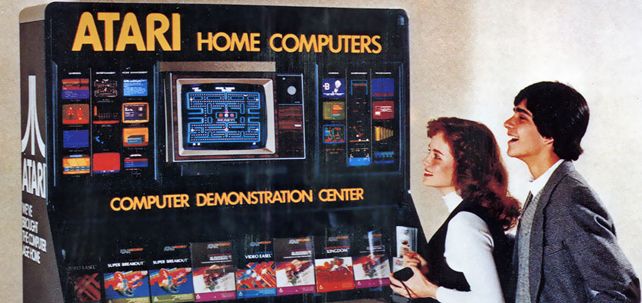At the celebration of Mindshare 50th networking event in Los Angeles, Nolan Bushnell said improving intelligence doesn't require state-of-the-art gadgets or mind-altering medication--just a pair of skis and some yoga pants.

Since 2006, the monthly networking event Mindshare has brought together some of Los Angeles’ smartest entrepreneurs, artists, and inventors with the promise of cheap booze, local music, and often mind-blowing presentations. Described by founder Doug Campbell of Syyn Labs as the lovechild of TED and Burning Man (without the self-seriousness of either of those events), Mindshare commemorated its 50th consecutive month over the weekend with a three-day celebration of art, music, and technology. In addition to featuring curiosities like a giant Jenga tower and musical cacti, the event's impressive crop of speakers explored “what comes next” in fields like space exploration, game design, and health, not to mention more mysterious arts like bio-fashion and something called digital vasectomy or "scrotoscoping" (which isn't actually as frightening as it sounds).
More From Mindshare Atari founder Nolan Bushnell. | Photo: PureNintendo.com
Atari founder Nolan Bushnell. | Photo: PureNintendo.com
Check out more photos from Mindshare by following FastCompany on Instagram.
But the real showstopper came when Atari founder/serial innovator Nolan Bushnell took the stage to impart some of the wisdom he's learned over his 40-year career as an inventor and innovator. Considering his tech-crazed audience, and the fact that Bushnell was arguably the prototype for the modern tech entrepreneur, his advice for the new technorati was surprisingly and refreshingly analog:
Be Uncomfortable“You wanna build your IQ higher in the next two years? Be uncomfortable. That means, learn something where you have a beginner’s mind. I like to play chess. So it turns out, the neurogenesis (the birth of new brain cells) of chess, for me, is over. My brain grew a great deal when I was first learning, but once I really got it down, it’s very, very incremental. So if you want to do it right, learn how to ski. And then once you feel like you’re kind of under control, learn how to snowboard. And then learn how to rollerblade, then do tai chi, then do yoga. Stay on the uncomfortable path and you will find that you can get smarter.”
Look For Beauty“Walk to work, even if it’s four miles. Ride a bike to work. Drive a different way. On your way there, try to find beauty. You’d be surprised how much more of the neighborhood you can perceive and experience when you’re looking for unique spots of beauty. When you get to work, you’ll find that you have a better attitude, you’re more content, and you can put away your Zoloft.”
Move Your Body“Exercise aggressively. Twenty minutes. Thirty minutes. Get your heart rate to 80% of your ability, and then for the next three hours, just learn something. It turns out that when you are exercising aggressively, your brain is creating BDNF (brain-derived neurotrophic factor), 'Miracle-Gro for your brain.' That is a precursor protein for dendrite formation (dendrites are branched extensions of nerve cells). You’re putting in hardware for the software.”
Go (The F***) To Sleep“Remember that we can only in our forebrains handle 5-7 items. Our backbrains can handle massive amounts. So when you’re given a problem, think about it before you go sleep, and chances are you can solve it by the next morning. What’s happening is, your background processing is going on with many many more synapses, and you’d be surprised by the capability you’re able to unlock.”
Trust Your Ideas“Innovation almost has zero constituency. For example, if I showed you this left-handed purple widget, maybe no one thinks it’s a good idea, yet it’s clearly innovative. And so, when Steve Jobs and I used to hang out, one of the things we used to talk about is innovation, and I told him, 'Steve, if you believe in something, and you go into a room and there are 50 people there, and all 50 of them tell you that you’re crazy, stick with it. Stick with your project.'"
"Innovation is hard. It really is. Because most people don’t get it. Remember, the automobile, the airplane, the telephone, these were all considered toys at their introduction because they had no constituency. They were too new. And what you’re working on right now may in fact fall right into that. And if you see clearly, the pathway to the future, stick to it.”
[Top Image: Flickr user x-ray delta one]